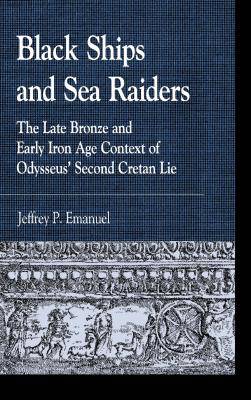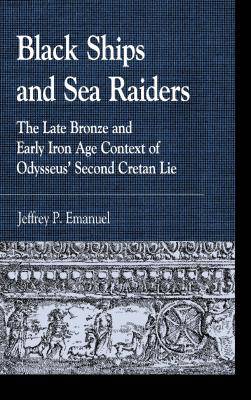
- Afhalen na 1 uur in een winkel met voorraad
- Gratis thuislevering in België vanaf € 30
- Ruim aanbod met 7 miljoen producten
- Afhalen na 1 uur in een winkel met voorraad
- Gratis thuislevering in België vanaf € 30
- Ruim aanbod met 7 miljoen producten
Zoeken
Black Ships and Sea Raiders
The Late Bronze and Early Iron Age Context of Odysseus' Second Cretan Lie
Jeffrey P Emanuel
€ 198,45
+ 396 punten
Uitvoering
Omschrijving
The end of the Bronze Age in the Eastern Mediterranean was a time of social, political, and economic upheaval - conditions reflected, in many ways, in the world of Homer's Odyssey. Jeffrey P. Emanuel examines the Odyssey's Second Cretan Lie (xiv 191 - 359) in the context of this watershed transition, with particular emphasis on raiding, warfare, maritime technology and tactics, and the evidence for the so-called 'Sea Peoples' who have been connected to the events of this period. He focuses in particular on the hero's description of his frequent raiding activities and on his subsequent sojourn in the land of the pharaohs, and connections between Odysseus' false narrative and the historical experiences of one particular Sea Peoples group: the 'Sherden of the Sea.'
Specificaties
Betrokkenen
- Auteur(s):
- Uitgeverij:
Inhoud
- Aantal bladzijden:
- 228
- Taal:
- Engels
- Reeks:
Eigenschappen
- Productcode (EAN):
- 9781498572217
- Verschijningsdatum:
- 20/12/2017
- Uitvoering:
- Hardcover
- Formaat:
- Genaaid
- Afmetingen:
- 152 mm x 229 mm
- Gewicht:
- 508 g

Alleen bij Standaard Boekhandel
+ 396 punten op je klantenkaart van Standaard Boekhandel
Beoordelingen
We publiceren alleen reviews die voldoen aan de voorwaarden voor reviews. Bekijk onze voorwaarden voor reviews.











